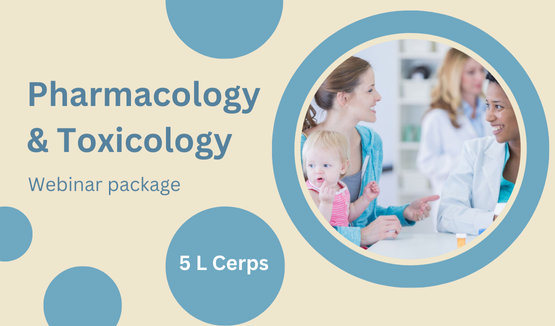
For most maternal medications, the potential for harming the breastfed infant is minimal; only small amounts of medication are transferred into human milk and absorbed by the infant. Most reviews of medications for breastfeeding women conclude that the benefits of medication use during lactation outweigh the risks. Yet, health professionals and families are often unsure about the safety of medicines on the breastfed infant, and this is still a barrier to achieving Australia’s breastfeeding goals.
IBLCE Content Outline: II, III, IV
Increasing diagnosis and self-recognition of neurodiversity, especially among women is occurring in increasing frequency worldwide. Attention- Deficit- Hyperactivity- Disorder (ADHD) is an often poorly understood condition of neurodivergence, with presentations in women having been traditionally missed. How healthcare providers approach this is an evolving area and yet there has been little discussion around the implications of ADHD diagnosis and pharmacological management during the peripartum and breastfeeding. There are increasing bodies of evidence demonstrating higher risks of complications during pregnancy and postpartum and that appropriate treatment greatly reduces these risks. Breastfeeding and pharmacological treatment are compatible with stimulants being not only the most efficacious treatment option but also the safest. Non-stimulant treatment options may be compatible but lack of data and higher rates of transfer in breastmilk can be problematic. Women however can be supported to have appropriate care of their ADHD during the peripartum and breastfeed also, with well-backed reassurance that this is often safe for their infant and is the gold standard for outcomes for both mother and child.
IBLCE Content Outline: 1 L Cerp (III, IV, VII)
Whether real or perceived, low breast milk supply remains one of the most commonly reported reasons for early breastfeeding cessation. While non-pharmacological support strategies remain the first-line approach for addressing concerns with low breast milk supply, we know that many women are recommended, or turn to using galactagogues (substances thought to promote lactation). Domperidone is one of the most widely recognised and recommended pharmaceutical galactagogues across the world. This presentation will provide an evidence-based guide to potential benefits and harms associated with using domperidone as a galactagogue and describe key recommendations relating to treatment initiation, dosing, duration of treatment, and treatment cessation. Evidence relating to the association between domperidone and sudden cardiac death and ventricular arrhythmias will also be discussed with a focus on its relevance to lactating women and consideration of risk management approaches that can be utilized in clinical practice to reduce the risk of harm.
IBLCE Content Outline: 1 L Cerp (II, III, IV, VI, VII)
Sadly, many mothers are told that they cannot breastfeed when taking medication if they have a chronic condition. It is seen as more important that the mother’s health is managed and breastfeeding is seen as unimportant and a drain on the mother. This is rarely based on evidence-based information or an understanding of how drugs pass into milk and the value of term breastfeeding. In this presentation, we will look at the way to use specialist sources of information, illustrated by situations commonly encountered by lactating mothers with chronic conditions and how breastfeeding may protect the health of future generations.
IBLCE Content Outline: I, III, IV, VII
This presentation reviews common radiology and nuclear medicine studies that breastfeeding women undergo and describes the safety of these with continued lactation. It also will describe specific circumstances when lactation should be interrupted temporarily and identifies the rare situations when lactation should be stopped completely. It will then transition to a discussion of what studies should be ordered for women who have a breast-specific concern while breastfeeding, and review guidelines for breast cancer screening during lactation. The second half of the lecture will cover anaesthesia and analgesia recommendations for lactation as well as specific concerns related to surgical procedures.
IBLCE Content Outline: 1 L Cerp (III, IV, VII)

Luke Grzeskowiak
Luke is a registered pharmacist at Flinders Medical Centre and practitioner fellow at Flinders University and the South Australian Health and Medical Research Institute. Luke’s research is focused on improving women’s and children’s health through the development and promotion of safer, more effective and personalized approaches towards medicines use. Luke is currently leading an active research program focused on improving the identification and pharmacological management of lactation insufficiency. Luke is the principal investigator of a large clinical trial evaluating different doses of domperidone for the treatment of lactation insufficiency following preterm birth.

Wendy Jones
Dr Wendy Jones is known for her work on providing a service on the compatibility of drugs in breastmilk and has been a registered breastfeeding supporter for 38 years. She is passionate that breastfeeding should be valued by all and that medication should not be a barrier. In her employed life she was a primary care pharmacist. Wendy left paid work 14 years ago to concentrate on writing her books and developing her website to provide information for mothers and professionals. Although threatening to retire, somehow she keeps getting involved in projects and she still enjoys supporting families and professionals. Wendy has published 4 books: Breastfeeding and Medication (2018), The Importance of Dads and Grandmas to the Breastfeeding Mother (2017), Why mother’s medication matters (2017), Breastfeeding and Chronic Medical Conditions (2020) and co-edited A Guide to Supporting Breastfeeding for the Medical Professional (2019). She has also written a lot of fact sheets on Breastfeeding and Medication on her website www.breastfeeding-and-medication.co.uk. Wendy was awarded an MBE in the New Year’s Honours List 2018 for services to mothers and babies. She received her award at Windsor Castle in May 2019 from Her Majesty Queen Elizabeth. She has 3 daughters and 7 grandchildren all of whom were breastfed to term. They form a large part of her life together with her husband, horse and dogs.

Lisa Amir
Professor Lisa Amir is a general practitioner and lactation consultant. She works in breastfeeding medicine at The Royal Women's Hospital in Melbourne. She is a Principal Research Fellow at the Judith Lumley Centre, La Trobe University, Australia, and the Editor-in-Chief of the International Breastfeeding Journal.

Katrina B. Mitchell
Katrina B. Mitchell is a breast surgeon, lactation consultant, and perinatal mental health provider. She runs a daily lactation clinic alongside her surgical practice at Ridley Tree Cancer Center at Sansum clinic in Santa Barbara, California. She speaks regularly on the intersection of lactation and surgery, and has authored book chapters, clinical care protocols, and journal articles on the topic. She is the creator of the physicianguidetobreastfeeding.org, an evidence-based resource for breastfeeding families and the communities that support them.

Nicole Gale
Dr Gale is a perinatal general practitioner and international board-certified lactation consultant who works exclusively in breastfeeding medicine and maternal/ infant health. She has undertaken further training in Newborn Behavioural Observation and Neuroprotective Developmental Care, having worked with families in this space for over a decade. She addresses complex perinatal, breastfeeding, and mental health concerns in consultations and believes in holistic and evidence-based care. She is passionate about health professional education and is deputy chair of the board of Breastfeeding Medicine Network Australia/NZ. She is currently opening ‘Juno - Maternal, Infant and Women’s Specialists’ a multidisciplinary medical clinic for women and families, in Melbourne, Australia.